Programs
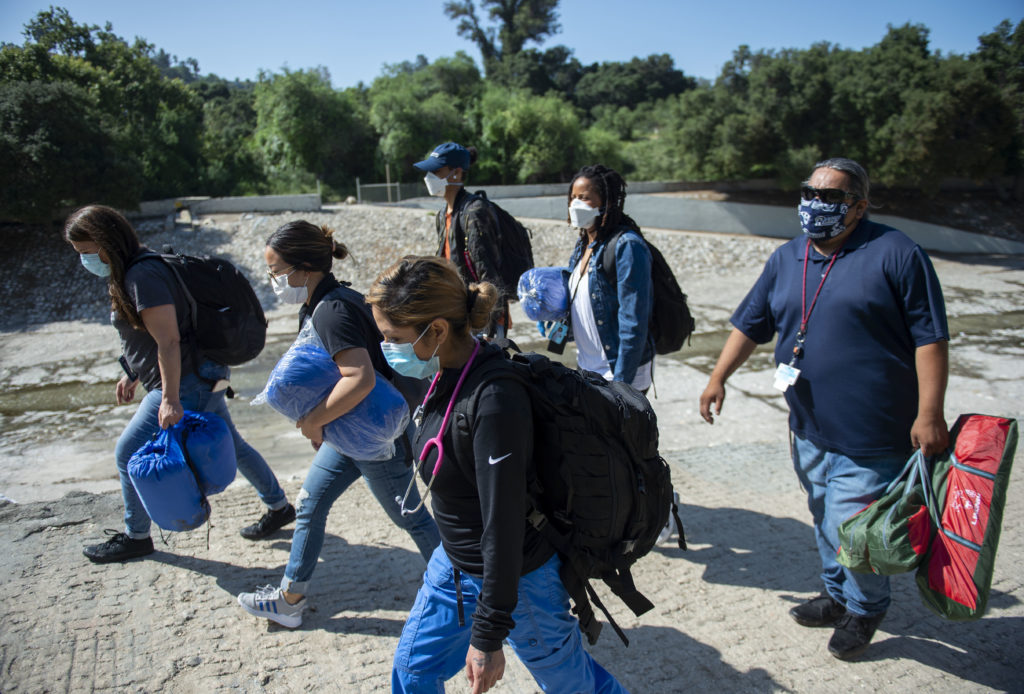
Specialized street teams connect unhoused individuals to housing and supportive services by repeatedly engaging clients to develop trusting relationships over time. The most vulnerable people will not come to us; we need to go to them. Multi-Disciplinary Teams (MDTs) include a health specialist, mental health specialist, substance use specialist, peer with lived experience, and a generalist.
Housing for Health’s teams are one pillar of the County’s coordinated system of outreach that also includes LAHSA, Department of Mental Health, and other partners across the County.
Between January and July 2022:
- 8,076 individuals served through outreach activities
- 72 MDTs operated throughout L.A. County
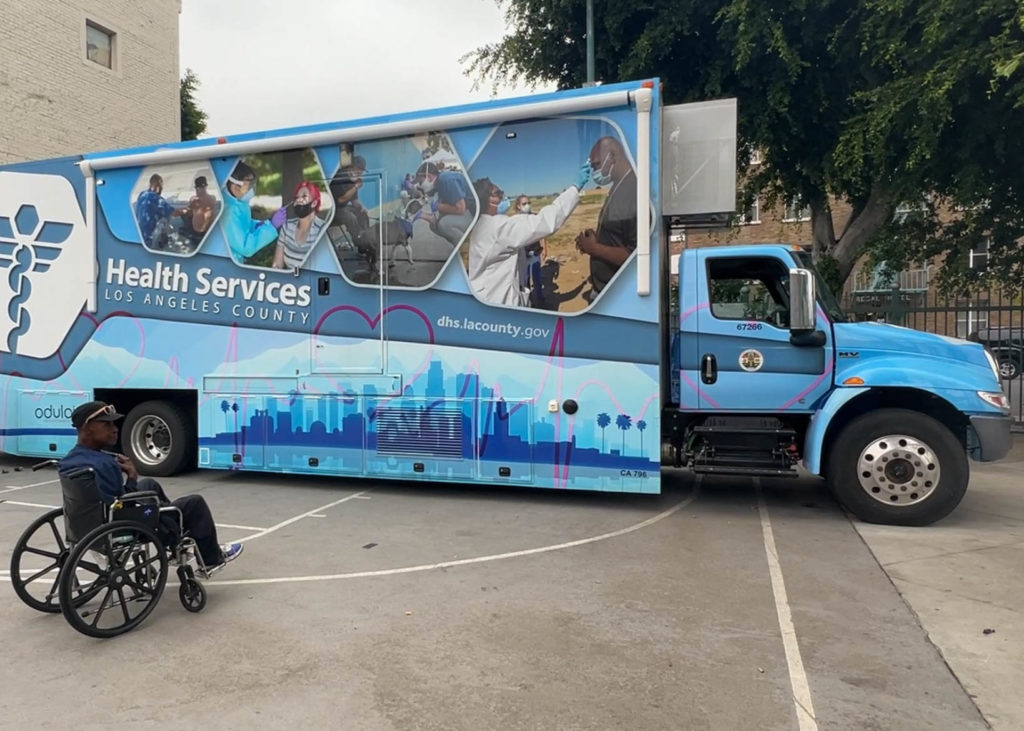
Housing for Health operates a first-of-its-kind mobile clinic system that provides comprehensive primary, urgent and women’s health care to people living in encampment communities throughout Los Angeles County.
Our innovative approach addresses health inequities among our most vulnerable population by removing barriers to consistent care by bringing it to the streets.
Each clinic offers private exam rooms and a range of immediate services including day-of lab results, ultrasounds and on-site pharmaceuticals. They are staffed by a team of doctors, mental health professionals, nurses, substance use counselors and social workers with expertise to treat health conditions and address social needs among people experiencing homelessness.
Mobile Clinic Flyers
Please click here for information about where the mobile clinics will be located. Come join us – we provide medical and behavioral health care, medications and more.
Read about the mobile clinics here.
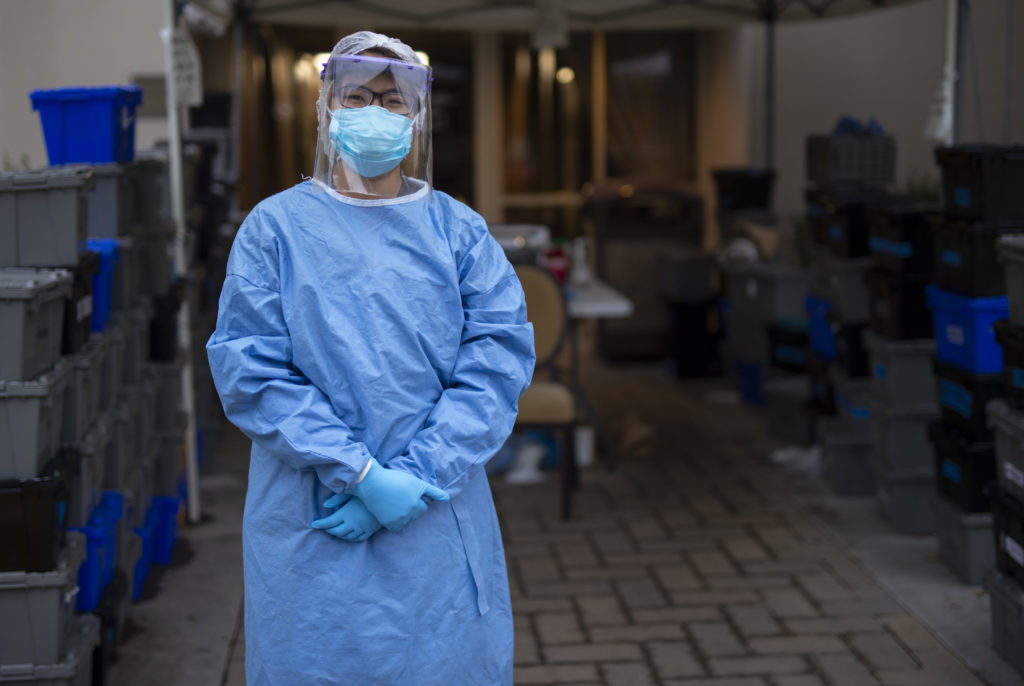
Housing for Health’s Clinical Services takes two approaches.
Direct: Teams of Housing for Health nurses, providers, social workers, and substance-use counselors provide wrap-around care for individuals struggling with physical and behavioral health comorbidities and provide complex care management services in non-traditional settings (riverbeds, shelters, and apartments) to improve the client’s health outcomes, enhance meaningful connections to health care, and optimize the client’s function and quality of life.
Contracted Partners: Housing for Health clinical and non-clinical staff provide robust training and technical assistance to subcontracted outreach workers and case managers, so that they can accompany individuals to medical appointments, improve adherence to medications and treatment recommendations, and build client health literacy and disease self-management skills.
Housing for Health Clinical Support members are influenced in their daily work by the following paradigms: walking with individuals as a non-judgmental agent and supporter of change; trauma-informed care; harm reduction; and pragmatic solidarity to enhance the client’s dignity and purpose.
Located in the heart of Skid Row in downtown L.A., the Star Clinic:
- Acts as the hub of our clinical services and specializes in serving patients with complex physical and/or behavioral health issues who suffer high rates of morbidity.
- Also provides easy access to medical care for Housing for Health clients residing in nearby interim and permanent housing projects.
- 2,928 patient care visits between January and July 2022.
The In-Home Care Giving program was established to provide caregiving and home health services so clients may remain independent in their housing settings for as long as possible.
- The program works with home health agencies to provide caregivers to eligible clients in various settings such as Project Roomkey and our permanent supportive housing program.
- It is primarily intended to serve people who are awaiting approval for the state funded In-Home Supportive Services (IHSS) program and stays with the client until a home health provider is secured through IHSS.
- 182 people served January and July 2022.
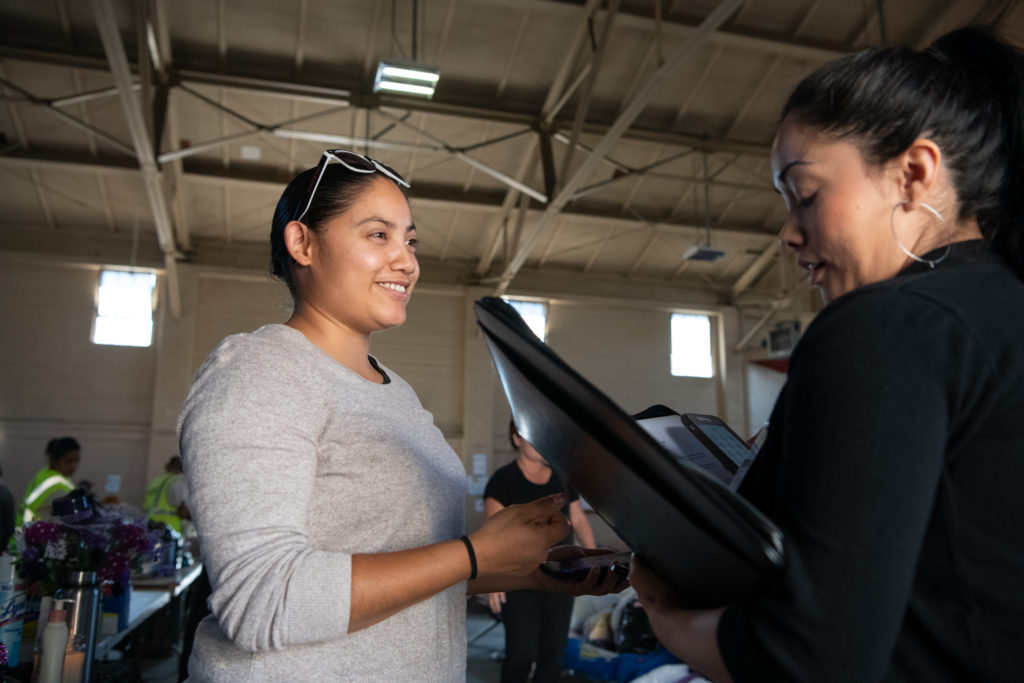
Interim housing provides people experiencing homelessness with a safe indoor environment to sleep, receive services and assessments, and be matched to permanent housing resources. Housing for Health specializes in providing interim housing for homeless individuals with complex medical and behavioral health conditions who need a higher level of support services than is available in most shelter settings through:
Recuperative Care: Short-term housing for individuals recovering from an acute illness or injury, or who have conditions that would be exacerbated if they are not in stable housing with medical care.
Stabilization Housing: Immediate housing solution for individuals who are medically vulnerable if not placed into a stable living environment.
Between January and July 2022:
- 96 new interim beds were added.
- 2,252 individuals requiring recuperative care served during reporting period January-June 2022
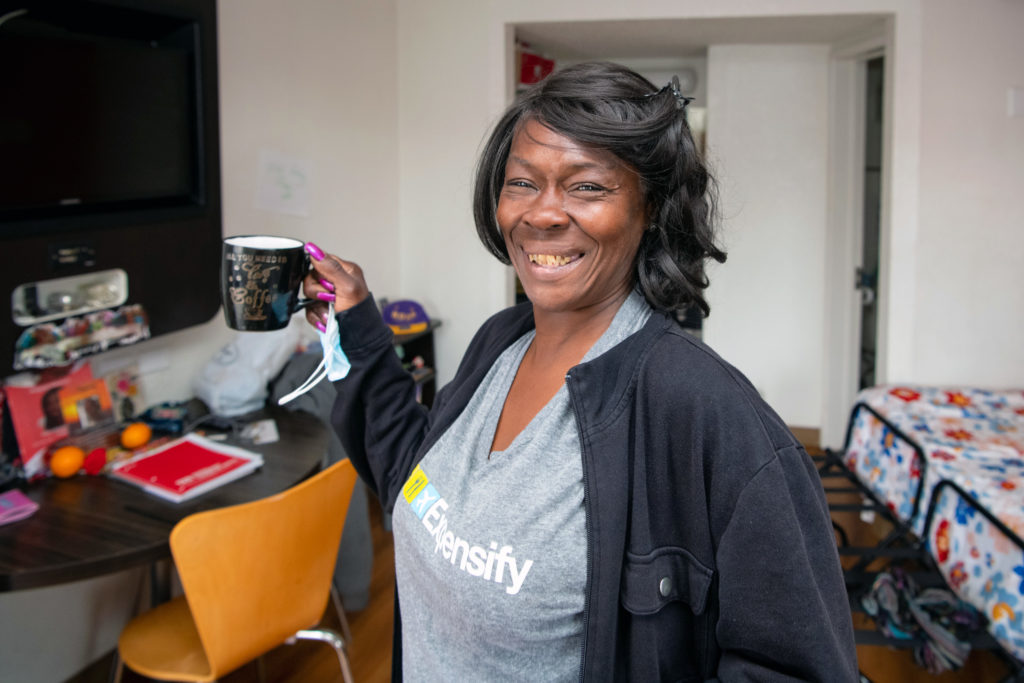
Permanent Supportive Housing (PSH) is an evidence-based practice that is critical in ending the cycle of homelessness for vulnerable people who have multiple complexities in securing and maintaining long-term housing. People experiencing homelessness are matched to permanent housing based on need and availability throughout L.A. County. Housing may be specifically designed for this use in a “project-based” model or procured in the private rental market where a person may utilize a “tenant-based” rental subsidy they can use in the community. Each person is provided Intensive Case Management Services (ICMS) that ensure housing stability often starting with crisis intervention and referrals to mental and physical healthcare services. Equally important are services to ensuring housing retention, which start with building community and purpose by being present in people’s lives for as long as they need the services. Services include eviction prevention, connection to disability benefits, retaining rental subsidies, assistance with life skills, job skills, and volunteer, educational and vocational opportunities.
Between January and June of 2022:
- 18,009 individuals provided permanent supportive housing
- 823 were new move-ins
- 2,903 new clients enrolled in ICMS Services
- Source of Rental Subsidy:
- 81% Federal Housing Subsidy
- 19% Flexible Housing Subsidy Pool
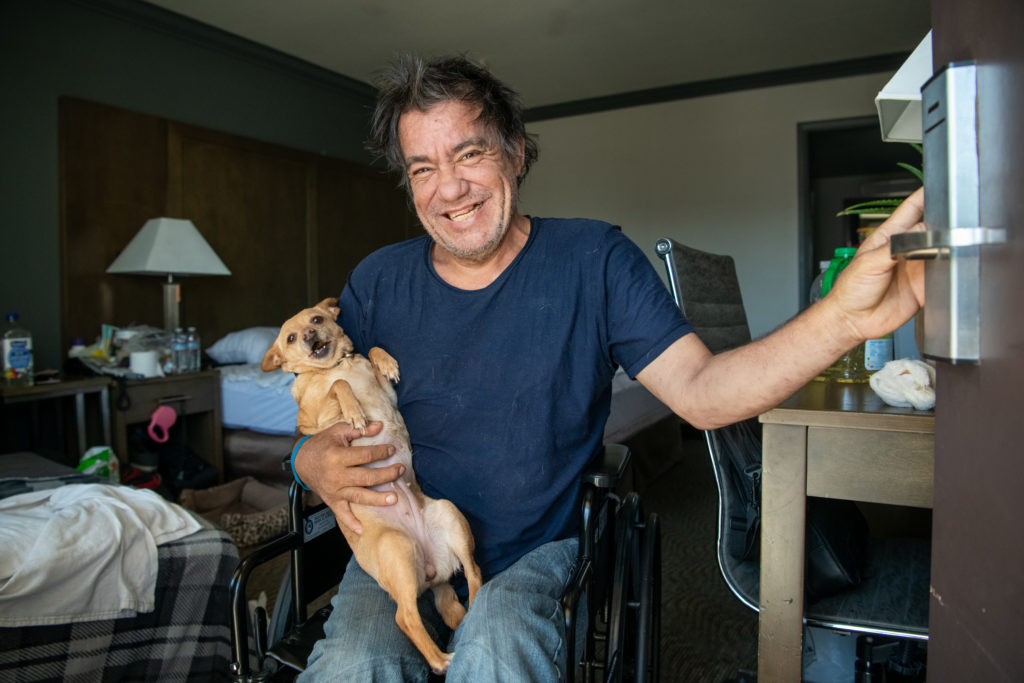
Enriched Residential Care facilities are a housing option for people who need daily, ongoing care and assistance with activities of daily living, such as those discharged from an inpatient hospital setting or who are living in other housing or unsheltered settings and need a higher level of care. Residents are placed in licensed residential care facilities and receive case management geared toward developing life skills and referrals to a primary care home, mental health and substance use disorder services. This is an evidence-based practice that is critical to ending the cycle of homelessness for vulnerable people who have multiple complexities in securing and maintaining long-term housing.
Between January and June 2022:
- 170 placements
- 898 total individuals served.
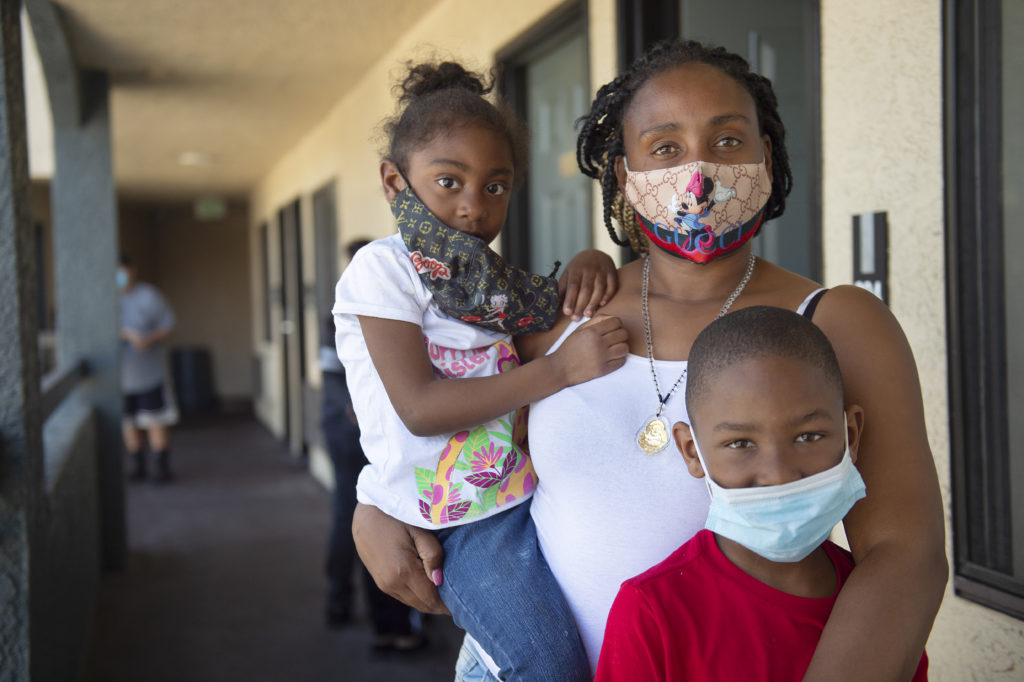
The Flexible Housing Subsidy Pool (FHSP) is a fiscal and contractual tool that provides the flexibility for Housing for Health and other County departments to scale housing options. Administered by Housing for Health’s nonprofit partner, Brilliant Corners, the FHSP engages with landlords, facilitates supportive housing development, and much more on behalf of the County. The FHSP allows Housing for Health and
other County entities to braid funding sources to create local rental subsidies and long-term housing solutions out of time-limited funding opportunities. The unique features of the FHSP allow Housing for Health and the wider L.A. County homeless services system to adapt quickly to an ever-changing, dynamic services environment.
- 5,224 households currently housed through FHSP
- 588 households housed between January and June 2022
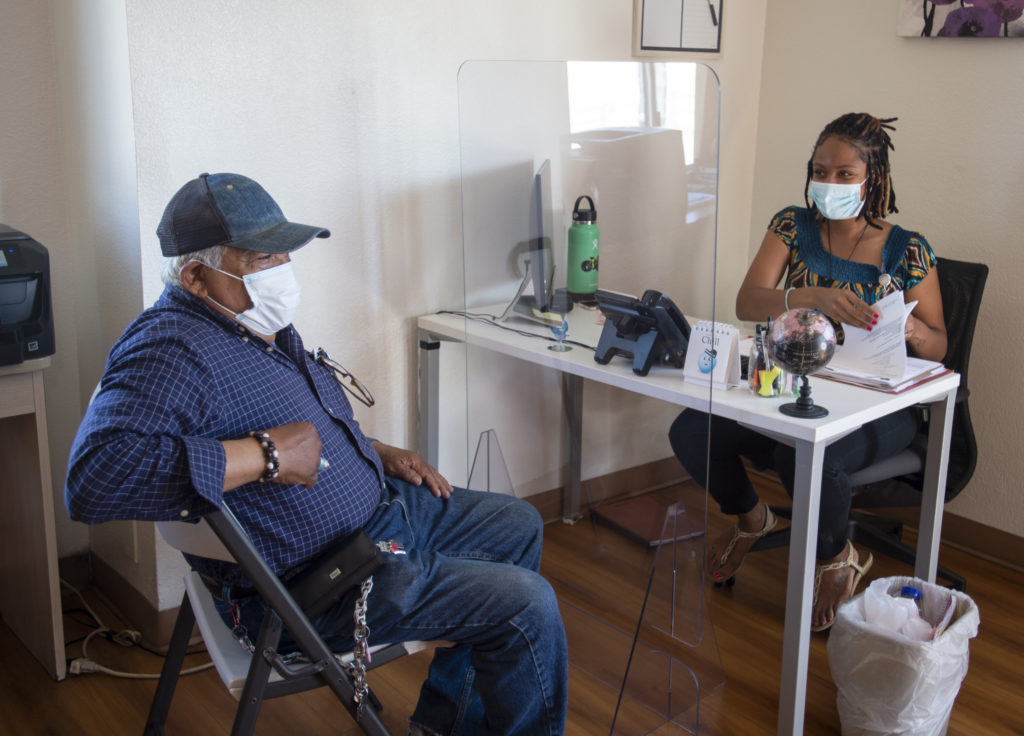
The Countywide Benefits Entitlements Services Team (CBEST) helps unhoused people, individuals at-risk of homelessness, veterans, and formerly incarcerated people to apply for public benefits, including Supplemental Security Income, Social Security Disability Insurance, Cash Assistance Program for Immigrants and Veterans Affairs benefits. CBEST consists of dedicated benefit advocates, clinicians, and legal and social service partners who provide wraparound services to support successful disability benefit connections.
Many people experiencing or at-risk of homelessness are entitled to federal, state, and local benefits, but are not able to submit successful benefits applications. CBEST partners with participants to ensure that they can submit successful benefits applications and appeal benefits denials. For many disabled households, receiving disability benefits can be life changing and can mean the difference between being able to afford rent or experiencing homelessness.
From January 1 through June 30, 2023:
- 7,987 individuals were enrolled in CBEST
- 1,034 benefit applications were submitted
- 85% approval rate for benefit claims
- $1,026 average monthly award
- $4,593,637 total awarded in retroactive backpay